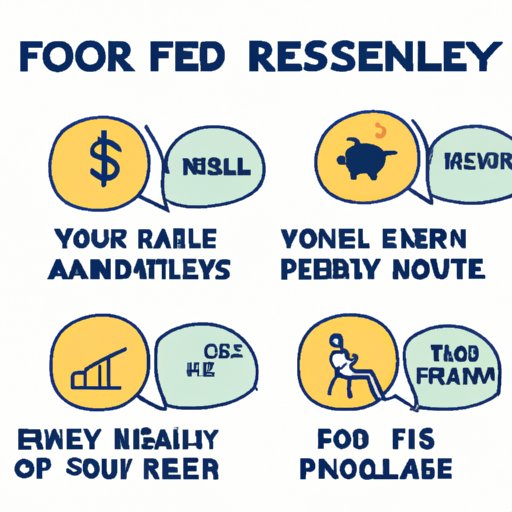
Introduction
Early retirement has become a popular goal among many individuals looking to achieve financial freedom and enjoy the benefits of retirement while still young and healthy. The freedom to travel, pursue hobbies, or spend time with loved ones without the constraints of work is a tempting prospect for many. However, early retirement requires careful planning and a long-term savings strategy. In this article, we will explore the key financial habits to cultivate, tips for creating a personalized retirement plan, the pros and cons of retiring before age 65, strategies for a low salary, maximizing retirement accounts, and overcoming the fear and finding motivation to retire early.
5 Financial Habits to Cultivate for Early Retirement
Living below your means is a crucial financial habit to cultivate when it comes to early retirement. Spending less than you earn frees up money to save towards retirement. Starting to save early gives you the advantage of compound interest, which can significantly impact your retirement savings over time. Investing wisely also plays a crucial role in building a retirement fund, however, it’s important to diversify investments to minimize risk.
Creating a budget and sticking to it is another habit that can help you save money towards retirement. Understanding your income and expenses is key to identifying areas where you can reduce expenses and save more money. Avoiding debt and paying it off as soon as possible frees up more money for retirement savings.
Creating a Retirement Plan That Works for You: Tips for Early Retirement
Understanding the retirement savings needed is the first step towards creating a personalized retirement plan. This involves estimating your desired retirement expenses and savings needed to achieve that goal. Diversifying investments can help you minimize risk and maintain a stable income in retirement. Developing an exit strategy from work involves considering how to transition from working life to retirement. Creating a personalized retirement plan can help you stay on track and achieve your goals. Calculating the potential retirement income is essential in determining how much more you need to save.
Retiring Early: The Pros and Cons of Retiring Before Age 65
The advantages of early retirement include the opportunity to pursue hobbies, less stress from work, traveling the world and more time with loved ones. The disadvantages of early retirement include the potential for fewer years of Social Security benefits, expensive healthcare, and an inability to work and save more for retirement. Strategies to counter these disadvantages include saving more money, considering alternative healthcare options, and considering part-time employment to supplement retirement income.
How to Retire Early on a Low Salary: Strategies for Saving More and Spending Less
Paying off debt is a crucial step towards saving more money for retirement. Living frugally and identifying additional income streams can help to maximize your savings potential. Investing in rental properties provides an opportunity for passive income and a hedge against inflation. Maximizing employer 401(k) contribution provides additional savings potential.
Maximizing Your Retirement Accounts: A Guide to Early Retirement Saving
Understanding different retirement accounts is key to maximizing your savings potential. Contributing to retirement accounts can provide tax benefits and can minimize your taxable income. Matching employer contributions provide an additional boost to your retirement savings. Investing in low-cost index funds and creating a diversified portfolio can also help to minimize risk and maximize returns.

The Psychology of Early Retirement: Overcoming the Fear and Finding the Motivation
Overcoming the fear of financial insecurity involves understanding the risks and rewards of early retirement. Finding the motivation to stick with a long-term savings plan involves visualizing the future after retirement and setting achievable goals. Finding work that you love after retirement can also provide a sense of purpose and fulfillment.
Conclusion
Achieving early retirement requires careful planning, financial discipline, and a long-term savings strategy. By cultivating key financial habits, creating a personalized retirement plan, and maximizing retirement accounts, it is possible to achieve financial freedom and retire early. Overcoming the fear and finding the motivation to stick with a long-term savings plan is key. The key takeaway from this article is to start planning for early retirement today. The resources made available in this article can help you plan and execute your early retirement strategy more effectively.




